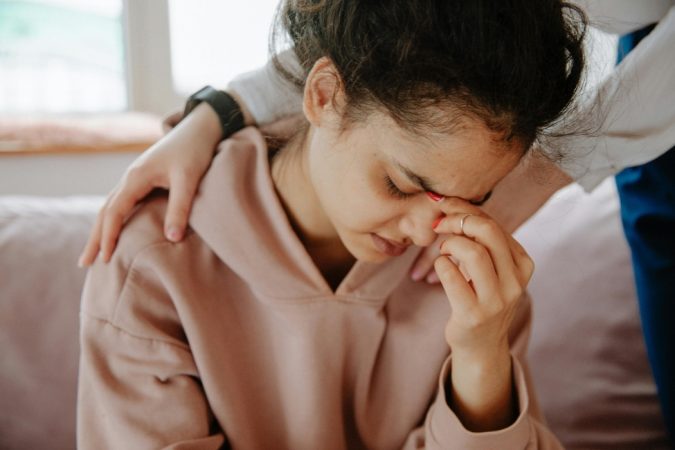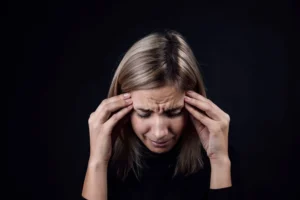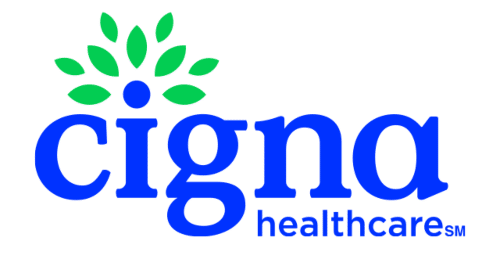Taking pills can be a compulsion for individuals with Obsessive-Compulsive Disorder (OCD). While OCD is commonly associated with obsessions (persistent, unwanted thoughts) and compulsive behaviors (repetitive actions performed to reduce anxiety), compulsive pill-taking can emerge as part of the disorder.
For some individuals, taking medication—whether it’s antidepressants like fluoxetine, sertraline, or clomipramine or over-the-counter drugs—becomes a repetitive behavior aimed at managing intrusive thoughts or reducing anxiety. This can lead to excessive or unnecessary pill consumption, impacting one’s quality of life and requiring intervention from a mental health professional. Understanding the underlying obsessions driving this behavior is essential for developing an effective treatment plan.
Taking Pills As Needed vs. Medication-Related Compulsions
The key difference between taking medications as needed for anxiety and compulsions lies in intent, control, and necessity.
Taking Medications as Needed for Anxiety
Individuals with an anxiety disorder may take medications, such as SSRIs (selective serotonin reuptake inhibitors) or benzodiazepines, under the guidance of a mental health professional to manage symptoms. These medications, like fluoxetine, sertraline, and paroxetine, are prescribed as part of a treatment plan and are taken when symptoms worsen or as directed by a doctor. The goal is to improve daily life and quality of life while addressing mental health conditions in a structured way.
Compulsions Involving Medication
On the other hand, compulsive pill-taking in Obsessive-Compulsive Disorder (OCD) is driven by intrusive thoughts and obsessive fears, rather than a medical necessity. Individuals may feel compelled to take medication repeatedly to prevent a feared outcome, even if it is unnecessary. For example, someone with OCD may take multiple doses of an antidepressant due to a time-consuming belief that the first dose was ineffective, or they may repeatedly take painkillers out of fear of potential pain rather than actual discomfort. This behavior is not based on medical guidance but on obsessions and repetitive behaviors that reinforce anxiety rather than relieve it.
Potential Effects of Medication-Related Compulsions
When taking pills becomes a compulsion in Obsessive-Compulsive Disorder (OCD), it can pose serious risks to an individual’s mental health, physical well-being, and daily life. The compulsive use of medication—whether it be antidepressants, over-the-counter drugs, or other substances—can lead to a range of negative consequences.
Physical Health Risks
Overdosing or Toxicity
Taking excessive amounts of fluoxetine, sertraline, paroxetine, or other selective serotonin reuptake inhibitors (SSRIs) can lead to dangerous side effects, including serotonin syndrome, which can be life-threatening.
Unwanted Side Effects
Repeated or unnecessary consumption of medication can cause gastrointestinal issues, dizziness, fatigue, or neurological problems that impact daily life.
Dependency or Substance Use Issues
Some individuals with OCD may develop a reliance on certain medications, especially if they believe the drug prevents intrusive thoughts or obsessions. This can increase the risk of substance abuse or misuse.
Mental Health and Emotional Risks
Worsening OCD Symptoms
Instead of relieving obsessions and compulsions, excessive pill-taking reinforces compulsive behaviors, making them more time-consuming and difficult to break.
Increased Anxiety and Distress
If someone with OCD believes they missed a dose or didn’t take the medication “correctly,” they may experience overwhelming anxiety disorder symptoms, worsening their quality of life.
Interference with Proper OCD Treatment
Those engaging in compulsive medication use may avoid more effective treatments, such as Cognitive Behavioral Therapy (CBT) and Exposure and Response Prevention (ERP), which are designed to address the root causes of OCD.
Social and Lifestyle Consequences
Strained Relationships with Family Members and Providers
Compulsive medication use can cause conflicts with family members, healthcare providers, and mental health professionals, especially if they express concern about unnecessary or excessive pill-taking.
Disruptions in Daily Life and Responsibilities
The obsession with taking medication can become time-consuming, interfering with work, school, and social activities.
Financial Burden
Repeatedly purchasing and using medications that are not medically necessary can lead to financial strain, particularly for individuals who do not have insurance coverage.
Solutions for Managing Medication-Related Compulsions
Effectively managing compulsive pill-taking in Obsessive-Compulsive Disorder (OCD) requires a combination of therapy, medical supervision, and lifestyle adjustments. Since this compulsion is driven by obsessions, intrusive thoughts, and anxiety, addressing the underlying causes can help break the cycle of repetitive behaviors.
Cognitive Behavioral Therapy (CBT) and Exposure and Response Prevention (ERP)
One of the most effective treatments for OCD is Cognitive Behavioral Therapy (CBT), particularly a specialized form called Exposure and Response Prevention (ERP).
- CBT helps individuals identify and challenge the obsessive thoughts that drive their compulsive medication use.
- ERP involves gradually reducing the urge to take unnecessary medications while exposing the individual to the anxiety that triggers the compulsion. Over time, this reduces reliance on compulsive behaviors
Working with a Mental Health Professional
Seeking guidance from a mental health professional, such as a psychiatrist or therapist, is crucial in developing a structured treatment plan.
- Medication Management: A psychiatrist can monitor the use of SSRIs like fluoxetine, sertraline, clomipramine, or fluvoxamine and ensure they are taken correctly.
- Psychotherapy Sessions: Therapy can help individuals understand their compulsions and develop healthier coping strategies.
Alternative Coping Strategies
Instead of taking medication compulsively, individuals can adopt healthier ways to manage anxiety and intrusive thoughts, such as:
- Mindfulness and Relaxation Techniques – Meditation, deep breathing, and progressive muscle relaxation can help reduce the urge to engage in compulsions.
- Journaling – Writing down obsessions and compulsions can help individuals recognize patterns and triggers.
- Delaying or Modifying the Ritual – If the urge to take unnecessary medication arises, postponing it or altering the routine can help break the habit.
Support Groups and Family Involvement
Overcoming compulsive pill-taking requires more than individual effort—it often takes a strong support system and a comprehensive approach to address any underlying conditions contributing to the behavior.
- Support Groups: Connecting with others who have OCD symptoms can provide encouragement and shared coping strategies.
- Family Members and Loved Ones: Educating family members about OCD can help them provide support without enabling compulsions.
Addressing Co-Occurring Conditions and Substance Use
Compulsive behaviors, including excessive pill-taking, often do not exist in isolation. Many individuals struggling with OCD symptoms also face co-occurring mental health disorders such as anxiety disorders, depression, or personality disorders, as well as challenges with substance abuse.
- Comprehensive Mental Health Treatment – Work with a mental health professional to identify and treat co-occurring disorders, such as anxiety disorders, depression, or personality disorders, alongside OCD.
- Integrated Substance Abuse Treatment – If substance use is a factor, seek specialized care that addresses both OCD symptoms and addiction through therapy, medication management, and behavioral interventions.
By combining psychotherapy, medical supervision, and alternative coping mechanisms, individuals can regain control over their daily life and significantly improve their quality of life while reducing OCD symptoms.
Breaking Free from OCD Compulsions – You Are Not Alone
Compulsive pill-taking in Obsessive-Compulsive Disorder (OCD) can be overwhelming and disruptive, affecting both mental health and daily life. While it may seem like a way to manage obsessions and anxiety, this behavior often worsens OCD symptoms and leads to unwanted side effects or substance use issues. Fortunately, there are effective treatments available, including Cognitive Behavioral Therapy (CBT), Exposure and Response Prevention (ERP), and proper medication management under the guidance of a mental health professional.
At Safe and Sound Treatment, we specialize in helping individuals struggling with severe OCD, anxiety disorders, and compulsive behaviors regain control of their lives. Whether you or a family member is facing challenges with OCD treatment, substance abuse, or co-occurring mental health conditions, we are here to help.
If intrusive thoughts, compulsions, or obsessive behaviors are interfering with your well-being, don’t wait. Contact Safe and Sound Treatment today to speak with a compassionate provider and take the first step toward healing. Help is available—you don’t have to go through this alone.













